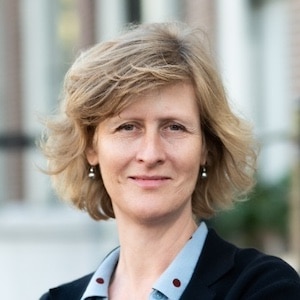Data Commons Collective
Through the Data Commons Collective initiative, we are exploring the social benefit, the strengths and limits of data commons. A vision of data sharing that assumes data can be seen as a new, digital resource, entirely for the benefit of the community.
Initiated by the Amsterdam Economic Board, the ‘Data Commons Collective’ was set up for this purpose. A consortium of organisations that includes Waag Futurelab, University of Amsterdam, Deloitte, Ahold Delhaize and AMdEX, with others expected to join in the near future.
Please read these news articles about data commons.
Why responsible data?
In the big tech-dominated era, data has been commercially exploited for so long that it is now hard to imagine that data sharing might also benefit the community. Yet that is what a collective of businesses, governments, social institutions and residents in Amsterdam aim to do. Sharing more data to better care for the city.
Data commons contribute to the Amsterdam Metropolitan Area’s vision of being a responsible, sustainable and inclusive digital region by 2040. This includes a people-centric approach where digitialisation is driven by societal values with autonomy and control over our data. From this perspective, technology must be applied responsibly to address societal challenges, including energy and health.
What is a common?
Commons are natural resources that are accessible to everyone within a community. Water. Fertile soil. Clean air. Actually everything the earth has given us. We as humanity have increasingly begun to exploit these commons in our pursuit of power and profit maximisation. As a result, we risk exhausting them. American scientist and Nobel laureate Elinor Ostrom, has studied hundreds of communities worldwide that have succeeded in using natural resources in a sustainable way. These established rules to manage and use resources collectively. From these case studies, she distilled principles that other communities can apply to use natural resources responsibly.
What is a data common?
Data is a new, digital resource: a valuable commodity that can be used to improve products and services. Data can thus also be used for the common good. There are two important differences between a common and a data common:
- Data in commons can be shared with a community that has never met in person and is not tied to any geographic location or sociocultural group
- Data commons never run out. Duplication of data is limitless, without losing any value.
Four principles for our data commons:
- The data common is used to serve a public or community purpose
- The data common requires cooperation between different parties, such as individuals, companies or public institutions
- The data common is managed according to principles that are acceptable to users and that define who may access the data commons under what conditions, in what ways they may be used, for what purpose, what is meant by data misuse
- The data common is embedded to manage data quality, but also to monitor compliance with the principles and ensure that data misuse is also noticed and that an appropriate response (such as a reprimand, penalty or fine) follows.
What do residents gain from this?
Residents of the Amsterdam Metropolitan Area should be able to live in a safe, inclusive, fair and transparent, sustainable digital city. Basically, they need to be able to trust that governments and organisations are handling their data responsibly. Without having to worry about data misuse. This is especially true for the approximately 200,000 residents who are digitally illiterate. This contributes greatly to quality of life in a city.
In addition, data owners will have more control over their data. Data users and owners are able to reach agreements on data sharing more quickly. This will make more data available to solve societal challenges. This is much needed: less than three percent of the world’s data is currently shared.
Role of the Amsterdam Economic Board
The Amsterdam Economic Board is involved in the Data Commons Collective in a coordinating role. We are working on:
- More parties are committed to data commons as a tool for responsible data sharing to tackle societal challenges. To this end, we are developing a compelling narrative on the importance of data commons, which includes the relationship with future EU legislation.
- Using applied, accessible use cases to understand how data commons can work for society. The principles and outcomes of the use cases should inspire others to share data responsibly.
Collaborating on data commons
The challenge is to make principles of data commons broadly applicable, by establishing an accessible model that builds trust and a sense of ownership and shared responsibility.
As a non-profit, we work with knowledge institutions, business, government and civil society organisations. The uniqueness of these partnerships is that we work together on important, forward-looking, societal issues, such as Responsible Data Sharing.
Right now, different organisations each control a piece of the data puzzle. We think the potential of data to solve social issues is currently underutilised. This initiative should start a movement to share data differently and actually make an impact.
Join us
Are you working on social issues and is data sharing an important to you? Or does your organisation want to collaborate on social issues? Please contact Simone van der Burg, Lead Data Commons.

Contact us
Want to keep up to date?
Get the best regional news and events (in Dutch) via the Board Update newsletter


